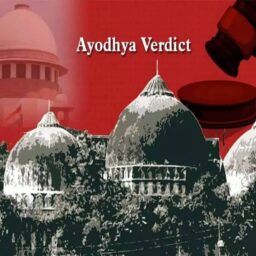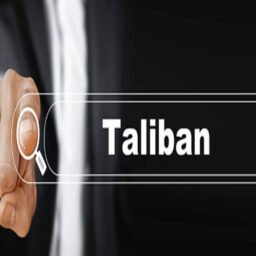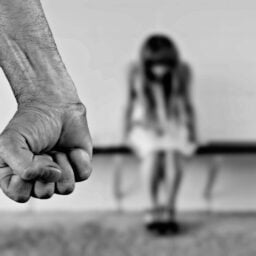Introduction
Marriage is considered a formal union of two individuals and an institution legitimizing reproduction and family life. In Indian Society, it confers the couple to live and reproduce and pragmatically become a part of the society.
Since It is presumed to be the legitimization of physical relation by society but in legal terms, it is a religious sacrament and permanent relationship between man and woman according to Hindu Marriage Act, 1955. Under Islamic Law, it is a legal and social contract between a man and woman to promote love and become an essential unit of society. But the interpretation of the word ‘sex’ in Article 15(1) of the Indian Constitution should be in the context of ‘sexuality’ (means sexual orientation) rather than genders so that a section of society other than men and women cannot be discriminated for their sexuality.
Legalizing Homosexuality in India
In the pre-independence era section 377, a residue of orthodox morality criminalized homosexual relationships which have been declared null and void by the apex court on 6th September 2018 considered as historical verdict. The section was abused for harassment where the leaders of religions opposed such relationships but the court recognized the Right to Love and dignity of every individual irrespective of their sexuality. The court ruled that discrimination based on sexual orientation is a violation of fundamental rights. The development of LGBTQ rights has gone through evolutionary cases in courts.
Evolution of LGBTQA+ Rights in India
The Judgement of Suresh Kumar koushal V. Naz Foundation [1]overturned the judgment of the High court of Delhi and criminalized homosexuality. The reason behind such judgment was that homosexuality does not carry consistency with rich historical Indian culture. This judgment led to rising of LGBTQ rights protest all over the country and the judgment was criticized as arbitrary and unconstitutional.
In the case of Naz Foundation Govt. v. NCT of Delhi[2], The High court of Delhi observed that section 377 of the Indian Penal Code infringes the fundamental rights of privacy, equality, and life. It also said that the provision put unreasonable restrictions on the privacy of intimacy. Justice DY Chandrachud said the state does not have the right to regulate the personal lives of the LGBTQ community as it is the denial of the Right to Privacy.
Finally, in the case, Navtej Singh Johar v. Union of India[3] constitutionality of section 377 of IPC was challenged in Supreme Court by activists. The court held the constitutional validity of the section as null and void as it curbs the right of equality and privacy including the Right to express sexual identity. The section discriminates against people based on their sexual orientation denying them the right to life.
However, it is not the end of the legal fight but the beginning of the novice fight for LGBTQA+ Rights. Now people belonging to the LGBTQA+ community have the right to enjoy their rights without any persecution fear. Even if Homosexuality is decriminalized in India but still there is no place for same-sex marriage, surrogacy, or adoption rights in India. The reason may be that society prefers to ignore the relations between same-sex as a valid ground of marriage, such relationship does not qualify the embedded purpose of marriage.
Recognizing Same-Sex Marriages in India
In the case of Justice Puttaswamy and others v. Union Of India[4], the honorable court observed that “the right to privacy is protected as an intrinsic part of the right to life and personal liberty under Article 21” the court also said that “Privacy include preservation of personal intimacies and sanctity of family life, Marriage, and sexual orientation”. But the spousal rights have become the next fight for the LGBTQA+ community. Since marriage laws have progressed in India, there is no provision of marriage for same-sex couples, becoming a demand to be dealt with by legislatures. However, in 2018 the union government is likely to oppose petitions of such marriages. But basic rights of marriage, inheritance, or adoption-related to one’s privacy cannot be denied on the ground of one’s sexual orientation as it violates the Right to Equality and Liberty.
In the case of Safin Jahan v. Asokan K.M, and others [5] (Hadiya case) The Supreme court said that the Right to choose and marry a partner is constitutional freedom and falls under the right to privacy. However, the contrast of the judgment and personal laws indicates the need for pragmatic alteration in personal laws in contrast to the Right to Equality, Right of freedom, and Right to Privacy. So, the denial of conjugal rights to same-sex couples deprives them social and legal benefits of marriage. Since the Right to marriage is recognized in Human Charter at the International level but still, Indian society is conservative to accept same-sex marriage. However, a union of marriage cannot be denied just because of sexual orientation.
Irrespective of the fact that Same-sex marriage is not recognized in India to date but there are instances of judicial support to such union. In the case Arun Kumar v. The Inspector General of Registration and Ors[6], the Madras High Court held under Hindu Marriage Act, 1955 the term ‘Bride’ includes transwomen and persons who identify their sexuality as women.
Conclusion
There is a need to make the institution of marriage more gender-neutral and inclusive by amending and reinterpreting the existing personal laws or another choice in hand can be drafting a new law for the community of LGBTQA+ including inheritance, divorce, adoption, etc. As the concept like Self-Respect Marriage developed the must expand the scope of marriage between Homosexual adults irrespective of their sexual orientation.
In conclusion to all the cases, there is also a need to incorporate legislative recognition of same-sex marriages which can be done either by altering the Special Marriage Act or to take into consideration the reforms suggested by LGBTQ activists to make same-sex marriage inclusive in family laws and other alternatives would be to formulate completely new law for such marriages.
Author(s) Name: Yashaswani Parashar (UPES, Dehradun)
References:
[1] Suresh Kumar Koushal v. Naz Foundation [2014] AIR 563 (SC)
[2] Naz Foundation v. State (NCT of Delhi) [2016] SCC OnLine 152 (SC)
[3] Navtej Singh Johar v. Union of India [2018] SCC 791 (SC)
[4] K.S. Puttaswamy v. Union of India [2017] AIR 4161 (SC)
[5] Safin Jahan v. Asokan K.M and others [2018] AIR 1933 (SC)
[6] Arun Kumar v. Inspector General [2016] SCC OnLine 10486 (Mad)
















